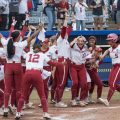The 100th anniversary of the Scripps National Spelling Bee culminated in a thrilling final round on Thursday night. Nine exceptional spellers, hailing from across the United States and beyond, battled it out for the coveted title. The three-day competition, which began with 243 spellers, saw competitors from Canada, Puerto Rico, Nigeria, and Kuwait vying for a spot in the finals. Held at the Gaylord National Resort and Convention Center in Maryland, the event was a whirlwind of intense focus, nail-biting moments, and surprising eliminations.
Two thirteen-year-old seventh graders, Esha Marupudi of Arizona and Oliver Halkett of California, were among those who narrowly missed the ultimate prize. Esha misspelled “aromorphosis,” while Oliver stumbled on “aurore.” Head judge Mary Brooks offered words of encouragement to both, acknowledging their dedication and promising futures. The remaining spellers then moved on to the vocabulary round, where a correct definition was as crucial as correct spelling.
The vocabulary round proved challenging. Akshaj Somisetty, a thirteen-year-old eighth-grader from Pennsylvania, was the first to be eliminated in this section, incorrectly defining “imbroglio.” This was Akshaj’s last year of eligibility, adding extra weight to the moment. The tension was palpable as the spellers tackled increasingly complex words.
Adding a unique twist to the proceedings, comedian and emcee Zach Sherwin entertained during commercial breaks with impromptu rap verses. While some spectators found his performances amusing, several eliminated spellers voiced their disapproval, creating a humorous contrast to the intense competition. One particularly memorable moment involved Harini Murali, a thirteen-year-old eighth-grader from New Jersey, confidently spelling “bibliognost.” Harini’s performance highlighted the impressive vocabulary and spelling skills of these young scholars.
The competition was fierce, with spellers demonstrating remarkable knowledge of etymology and word origins. Words like “isopag,” “corbicula,” “dolabrate,” and “Politique” fell before the spellers’ mastery, showcasing the breadth of their linguistic capabilities. The finals included a spelling round, a vocabulary round, and a final spelling round. Each spelling round gave participants 90 seconds to spell a word, with the option to request definitions, parts of speech, origins, and alternate pronunciations. The pressure of the clock added to the drama, as spellers had to balance speed and accuracy.
This year’s bee marked the centennial celebration, and it was a fitting tribute to the competition’s rich history. The first champion, Frank Neuhauser, an eleven-year-old from Kentucky, correctly spelled “gladiolus” back in 1925, setting the stage for a century of linguistic excellence. The 2025 bee was broadcast live on Ion and streamed online at www.spellingbee.com, ensuring that a wide audience could witness the impressive skills of these young wordsmiths. The event also featured a reunion of past champions and a significant showing of bumblebee-themed accessories, adding a fun, festive touch to the already exciting atmosphere. The legacy of the Scripps National Spelling Bee continues, inspiring generations of students to embrace the power and beauty of language.










